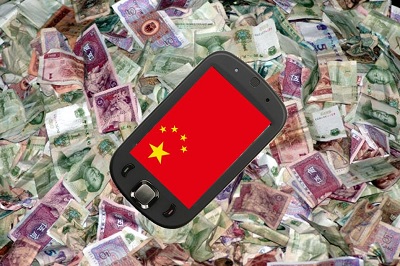Mobile games are becoming much more popular throughout China
Mobile games are exploding in China. The country is now home to one of the largest mobile markets in the world, largely due to the increase smartphone penetration and the expansion of mobile networks throughout the country. Niko Partners, a leading research firm, has released its latest report concerning the growth of mobile gaming in China. According to the report, China is on track to outpace the United States when it comes to mobile gaming revenue.
Mobile gaming revenue in China to hit $5.5 billion by the end of this year
The report shows that China’s mobile gaming revenue will reach $5.5 billion by the end of this year. This represents a 66% increase over the revenue that was reported in 2014. Global mobile gaming revenue is expected to be approximately $30 billion, with China accounting for a significant portion of that revenue as its gaming space begins to expand. By the end of this year, China is expected to be home to more than 420 million gamers that use their mobile devices to play the games they like.
The US is beginning to fall behind when it comes to mobile games
 The United States has been one of the countries leading the way in mobile gaming revenue for several years. Now, however, China is beginning to outpace the country, largely due to the number of mobile games that have been released in the country. The Chinese gaming market is currently dominated by Tencent, which owns the massively popular WeChat application. Other companies have found success in the market as well, where consumers are showing favor for playing convenient games while commuting.
The United States has been one of the countries leading the way in mobile gaming revenue for several years. Now, however, China is beginning to outpace the country, largely due to the number of mobile games that have been released in the country. The Chinese gaming market is currently dominated by Tencent, which owns the massively popular WeChat application. Other companies have found success in the market as well, where consumers are showing favor for playing convenient games while commuting.
China’s mobile gaming revenue to hit $11.1 billion by 2019
According to the report from Niko Partners, China’s mobile gaming revenue is expected to swell to $11.1 billion by 2019. As developers bring more games to the country and mobile networks continue to expand, more consumers are expected to spend money on these games. Consumers have shown that they are very willing to spend money on mobile games they enjoy, though doing so has been considered a controversial practice in other parts of the world.
Brandtone, a company from Ireland, has now partnered up with the corporation in south-east Asia.
Mobile Marketing business, Brandtone, has now revealed that it has agreed to work with Unilever in order to assist that company in being able to engage with millions of people residing in south-east Asia.
These two businesses have already worked together and have been successful in their partnership.
They have already managed to run online, offline, and mobile marketing campaigns for the Sunlight and Magnum brands owned by Unilever. The most recent deal will have the Irish firm working to bring the consumer product giant’s customers in south-east Asia to a position in which they will interact with each other. To start, it will ensure that these shoppers are – at the very least – accessible to the brand. Among the countries of focus will be Vietnam, Thailand, and the Philippines.
Brandtone has been responsible for other mobile marketing campaigns for massive companies.
 Among the best known names that Brandtone has managed in terms of online, offline and mobile advertising include Heineken, Pepsi, Mondelēz (previously the Kraft snacks division), and Kellogg’s. They have worked to bring those brands into the developing world through mobile technology based interactions.
Among the best known names that Brandtone has managed in terms of online, offline and mobile advertising include Heineken, Pepsi, Mondelēz (previously the Kraft snacks division), and Kellogg’s. They have worked to bring those brands into the developing world through mobile technology based interactions.
In south-east Asia, the smartphone penetration rate is as tiny as 20 percent in certain regions. Therefore, Brandtone uses SMS rewards programs in order to provide consumers with incentives. In return for those benefits, customers provide the company with some information about themselves that will then be used in order to create marketing campaigns that are better designed to be relevant to the specific needs and wants of those people.
According to the Brandtone chief executive, Donald Fitzmaurice, “When we announced our expansion into Indonesia almost a year ago, even we could not have predicted the scale of demand from brands for mobile-first data-led marketing strategies, nor how receptive consumers themselves would be.”
He explained that this part of the world has reached a mobile marketing tipping point and that he felt that this was the ideal time for Brandtone’s clients to be able to use the “power of mobile and big data” in order to reach those consumers in a highly effective way.
 The United States has been one of the countries leading the way in mobile gaming revenue for several years. Now, however, China is beginning to outpace the country, largely due to the number of mobile games that have been released in the country. The Chinese gaming market is currently dominated by Tencent, which owns the massively popular WeChat application. Other companies have found success in the market as well, where consumers are showing favor for playing convenient games while commuting.
The United States has been one of the countries leading the way in mobile gaming revenue for several years. Now, however, China is beginning to outpace the country, largely due to the number of mobile games that have been released in the country. The Chinese gaming market is currently dominated by Tencent, which owns the massively popular WeChat application. Other companies have found success in the market as well, where consumers are showing favor for playing convenient games while commuting.
 Among the best known names that Brandtone has managed in terms of online, offline and
Among the best known names that Brandtone has managed in terms of online, offline and 